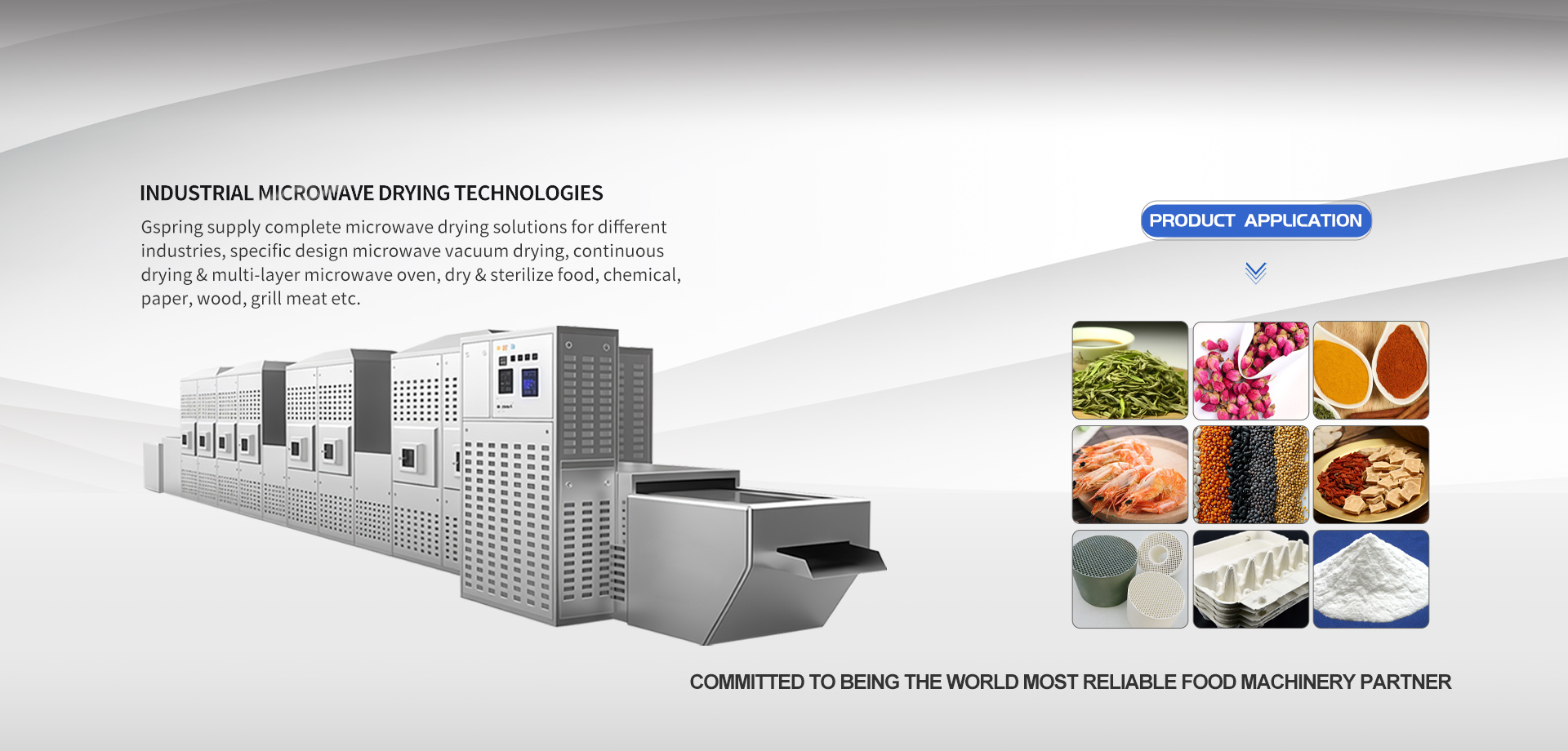In the world of modern food processing, sustainability and environmental responsibility are more important than ever. As climate change concerns grow, industries are seeking innovative solutions that minimize ecological footprints while maintaining efficiency and quality. At the forefront of this movement is Gspring Machine Manufacturer, a pioneer in advanced food processing technology. Among their flagship products, the vacuum microwave oven stands out not only for its technological prowess but also for its significant environmental benefits.
A vacuum microwave oven combines the principles of vacuum drying and microwave heating. By reducing the atmospheric pressure inside the chamber, water boils at a lower temperature, allowing for gentle and rapid drying of food products. The integration of microwave energy accelerates this process, ensuring even and efficient moisture removal while preserving nutrients, flavors, and textures.
Energy-efficient operation
Faster drying times compared to conventional methods
Preservation of food quality and nutrition
Reduced carbon footprint
The environmental impact of food processing equipment is a critical consideration for manufacturers and consumers alike. Gspring Machine Manufacturer has invested heavily in research and development to ensure their vacuum microwave ovens offer substantial ecological advantages.

Microwave Machine in Chemical Industry
Air Blast IQF Tunnel Freezer
Fluidized Bed IQF freezer
Tunnel Microwave Dryer
Spiral Freezer
Microwave Food Dryer
Traditional drying methods, such as hot air or freeze drying, often require prolonged heating at high temperatures, consuming large amounts of energy. In contrast, vacuum microwave ovens utilize targeted microwave energy to heat water molecules directly, drastically reducing drying times and energy consumption. Studies have shown that vacuum microwave drying can use up to 50% less energy than conventional methods.
With reduced energy requirements comes a direct decrease in greenhouse gas emissions. By adopting vacuum microwave ovens from Gspring Machine Manufacturer, food processors can significantly cut their carbon emissions, contributing to a more sustainable and eco-friendly production cycle.
Water conservation is another critical environmental concern. Vacuum microwave ovens do not require additional water for cooling or steam generation, unlike some traditional systems. This not only saves water but also reduces the burden on wastewater treatment facilities.
One often-overlooked aspect of environmental impact is food waste. The gentle drying process of vacuum microwave ovens preserves the quality, color, and nutritional value of food products, resulting in less spoilage and waste. This aligns perfectly with global efforts to reduce food loss across the supply chain.
| Aspect | Vacuum Microwave Oven | Conventional Drying |
|---|---|---|
| Energy Consumption | Low | High |
| Drying Time | Short | Long |
| Food Quality | High (nutrient & flavor retention) | Often compromised |
| Water Usage | Minimal | Moderate to high |
| Emissions | Low | High |
At Gspring Machine Manufacturer, sustainability is more than a buzzword—it’s a core value that drives innovation. The company continually refines its vacuum microwave oven technology to further reduce energy consumption and environmental impact. By partnering with food processors worldwide, Gspring is helping to set new standards for green manufacturing in the food industry.
The integration of smart oven technology into vacuum microwave ovens is a game-changer. Gspring’s models feature intelligent control systems that monitor and adjust temperature, pressure, and microwave intensity in real-time. This not only enhances efficiency but also ensures optimal environmental performance. Smart ovens can adapt to different products, reducing waste and energy use even further.
Vacuum microwave ovens are not limited to a single sector. Gspring’s solutions are used in:
Fruit and vegetable drying
Herb and spice processing
Snack production
Pharmaceutical and nutraceutical industries
Each of these applications benefits from the environmental advantages of vacuum microwave technology, making it a versatile and responsible choice.
For large-scale operations, the industrial microwave oven is indispensable. Gspring’s industrial models offer the same environmental benefits as their smaller counterparts, but with the capacity to handle high-volume production. This technology allows manufacturers to meet growing demand without sacrificing sustainability.
While vacuum microwave ovens offer significant environmental benefits, there are challenges to widespread adoption. Initial investment costs can be higher than those for traditional equipment, and operators may require training to maximize efficiency. However, the long-term savings in energy, water, and waste management quickly offset these barriers.
Moreover, as regulations around environmental impact tighten and consumer demand for sustainable products increases, the adoption of advanced technologies like those from Gspring Machine Manufacturer will become not only beneficial but necessary.
The environmental impact of vacuum microwave ovens is clear: lower energy use, reduced emissions, minimal water consumption, and less food waste. As a leader in this field, Gspring Machine Manufacturer is driving the transition to greener, smarter food processing. By choosing Gspring’s vacuum microwave ovens—whether for small-batch artisan production or large-scale industrial operations—manufacturers can embrace sustainability without compromising on quality or efficiency.
As the world continues to prioritize environmental responsibility, vacuum microwave technology stands as a beacon of innovation and hope for a cleaner, more sustainable future.
Keywords: vacuum microwave oven, industrial microwave oven, smart oven
Contact: Grace Guo
Phone: +8617686617441
E-mail: grace@chinagspring.com
Whatsapp:+8617686617441
Add: No. 68, Jiuquzhuang Road, Shizhong District, Jinan, Shandong, China, 250000
We chat
